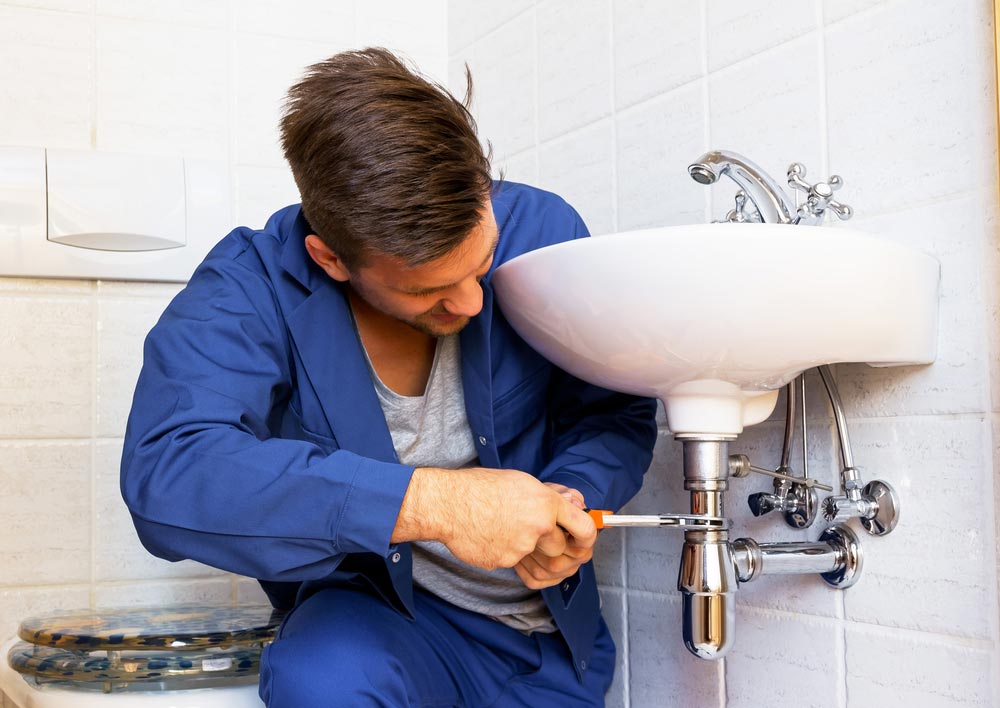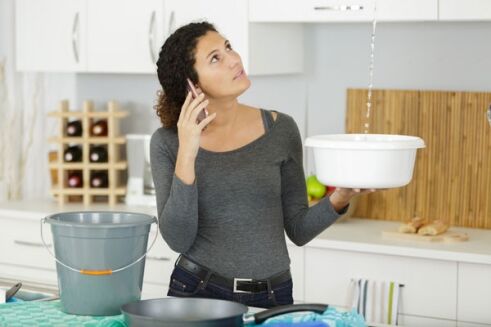Ways to Manage Urgent Pipe Problems with Temporary Solutions Until Help Arrives
Ways to Manage Urgent Pipe Problems with Temporary Solutions Until Help Arrives
Blog Article
This great article below in relation to What to Do During a Plumbing Emergency is immensely enjoyable. Don't skip it.

Pipes emergencies can strike at any moment, causing tension and possible damages to your home. Whether it's a burst pipe, a stopped up drain, or a leaking tap, knowing exactly how to take care of the situation until an expert plumbing technician arrives can save you from further issues. This post gives essential emergency plumbing ideas to aid you mitigate damage and restore control throughout a pipes situation.
Turn Off the Supply Of Water
The primary step in any kind of pipes emergency is to shut down the water supply. For localized issues, such as a leaking faucet or toilet, turn off the valve near the fixture. When it comes to a significant leakage or ruptured pipeline, situate your home's major water shut-off valve and turn it off right away. Understanding the place of these valves in advance can save important time during an emergency.
Address Little Leaks with Short-term Repairs
Little leaks can swiftly end up being considerable problems if left unattended. Use these short-term repairs until specialist help arrives:
While these solutions aren't long-term, they can help decrease water loss and damages.
Unclog Drains Pipes Safely
A clogged up drainpipe can be an irritating and untidy issue. Below's exactly how to tackle it:
If these techniques don't work, prevent using extreme pressure, as it might worsen the obstruction.
Take Care Of Overflowing Toilets
An overflowing commode can cause instant disorder. Here's what you need to do:
Shut down Your Water Heater
In certain emergencies, such as a burst pipe, it's a good idea to turn off your hot water heater. This protects against overheating or damage to the unit when water stops flowing. Turn off the power supply to the hot water heater (electrical or gas) and allow it cool off to avoid potential hazards.
Temporarily Stop a Ruptured Pipeline
A burst pipe can bring about considerable water damage in mins. To alleviate the issue:
Call a specialist plumbing professional immediately to deal with the problem permanently.
Handle Frozen Piping Carefully
In colder climates, frozen pipes are a common emergency. If you think a frozen pipe:
Protect against More Damage
Taking fast activity to reduce damages can conserve you time and money over time. Below's how:
. Have an Emergency Pipes Kit
Prepare a standard plumbing emergency package to take care of minor concerns effectively. Your set needs to consist of:
Having these devices accessible can make a significant difference in your capability to take care of emergencies.
Know When to Call an Expert.
While quick fixes can help briefly, particular pipes problems call for immediate expert focus. Call a plumbing if:.
Quickly speaking to an expert makes certain the problem is solved appropriately and prevents additional complications.
Final thought.
Pipes emergency situations can be overwhelming, yet with the appropriate knowledge and tools, you can handle the scenario effectively up until aid arrives. By switching off the supply of water, addressing little leakages, and using momentary solutions, you can reduce damages and keep your home safe. Keep in mind, these tips are short-term options; constantly speak with a qualified plumbing to manage the root cause of the issue. Prep work and fast thinking are your ideal allies in any plumbing emergency situation.
8 Helpful Tips for Managing Plumbing Emergencies at Home
If your plumbing system hasn’t failed once, wait for it because almost everyone has a story to tell. Sometimes, it could be simple emergencies such as a leaking pipe, a blocked cistern, or even a big burst pipe. In situations like this, you need to have some handy tips to save you some money and from possible damages.
Take care of minor issues early.
Sometimes, you could have avoided an emergency by taking proactive measures while it was still early. Some major plumbing emergencies can be a result of an ignored minor issue. We recommend that you have items like plumbing tapes and other related items. A plumbing tape can allow you to manage minor leaks before the plumber arrives.
Cut off the water supply.
This tip is essential in almost any type of leakage problem. For problems like minor leakages in the toilet or kitchen, turn off the supply that takes water to the affected pipes. If the leakage is a major pipe, you must shut off the supply valve to the entire building. This will help you avoid flooding your home and neighbors if you share a flat.
Know your plumbing system
Folks typically move into a new apartment without understanding the water supply around the building. This can prove disastrous if a water emergency arises and the plumber is far away. The previous tip will prove useless if you don’t practice this one. More importantly, know where your water shut-off valve is located – you’ll need that knowledge to prevent potential home floods.
Have some common handy tools
There are lots of plumbing emergencies that you can handle without hiring a plumber. That’s why you must keep some tools available always. Some tools that you can use to fix simple plumbing emergencies easily include plumbing tapes, screwdrivers, thread seal tapes, plungers, pliers, tape measures, and rubber gloves.
Insulate your pipes from cold
You’ll save yourself from many plumbing expenses if you protect your water pipes from the cold. This is because of the harmful effects that cold weather can have on your pipes. During winter, your pipes can burst from being overly expected to freezing temperatures. So, make sure insulators are there to keep the pipes working correctly.
Avoid practices that will clog your toilet.
Many people indulge in practices that can damage the plumbing system of the entire building. One of these is when they use their toilet to dispose-off garbage. They flush all kinds of things, such as paper towels, bandages, hairs, female sanitary products, etc., down the toilet. This will block your toilet in the long run, incurring unnecessary expenditures. Dump such waste in the trash instead.
Check your dials regularly.
Sometimes, there could be leakages in your home without noticing them in time. So, constantly monitor your water meter dial. If the dial is reading when there is nobody using water, this is an indicator that there is leaking. Check for leaks immediately. Call a plumber as soon as possible if you can’t find any.
https://www.constructionplacements.com/8-helpful-tips-for-managing-plumbing-emergencies-at-home/

I'm certainly very taken with What to Do While Waiting for an Emergency Plumber and I am hoping you enjoyed the entire article. Sharing is good. You won't know, you might be doing someone a favor. We treasure reading our article about What to Do During a Plumbing Emergency.
Go Services Report this page